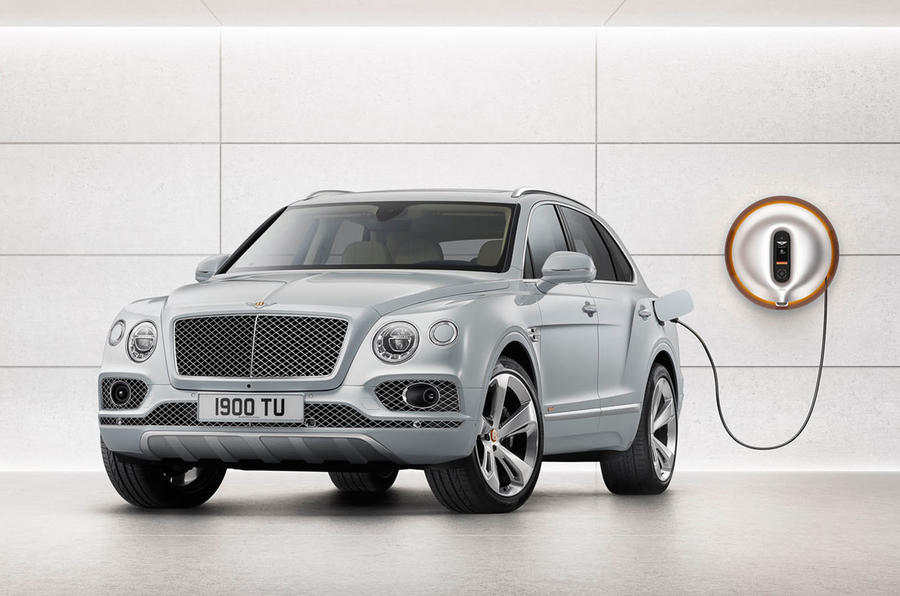Bentley boss Adrian Hallmark has called on the UK government and regulators to make clearer, more decisive pronouncements if they want car buyers to switch to electrified vehicles.
Speaking at the FT Future of the Car summit, Hallmark highlighted that the most significant growth for diesel in the past was directly related to the government introducing tax incentives to encourage people to take up the lower-CO2 fuel option.
“Diesel was presented as a solution 15-20 years ago and the incentives gave a clear, simple economic advantage,” said Hallmark. “Most importantly, that was a decisive action - and there has to be one if we want people in battery-electric vehicles. We’ve got to mandate and put electric cars at the heart of the system.”
The UK Government offers a £3500 grant for vehicles that emit less than 50g/km of CO2 and have a zero emission range of at least 70 miles. There is an £8000 grant for similar commercial vans, with a £500 grant available against the cost of installing an authorised home charging unit.
But Hallmark believes the incentives need to be far more wide ranging to drive EV take-up in the UK.
“In other countries charge points are standardised, there are smart charging solutions, every new-build house has a charge point on it - they are looking to incentivise and integrate,” said Hallmark. “Here, unless you are a Tesla customer, and have a wallbox at home, you face potential complications to your life to get the car charged.
“To be seamless requires a more concerted effort.”
Bentley launched a plug-in hybrid version of its Bentley Bentayga last year, and the firm’s head of engineering, Werner Tietz, recently told Autocar that the firm was investigating hydrogen fuel cell technology as a potential alternative to battery-electric models in the future.
Read more
Bentley open to EV, fuel cell and synthetic fuel technology
New Bentley Bentayga hybrid kickstarts brand's electrification plans





Join the debate
Add your comment
Is this bloke for real?
Dear Mr Hallmark, best sticking to your greeting card business because you're cluless when it comes to government incentives.
Yes the government promoted diesel, they based VED on C02 output to achieve it. Unless I'm very much mistaken, those incentives still exist? Diesel has gone out of favour therefore those who used to pay zero or £20 now pay £140. But those EV vehicles you speak of, well they produce 0 g/km CO2 therefore remain VED free.
Oh wait a minute... it's the boss of Bentley that saying this and given all his cars exceed the £40k threshold for higher tax - now we see what he's trying to achieve.
If you buy an EV that is less than £40k then VED is free. If you have the funds to purchase any car that costs greater then £40k then try looking at your own bank account to fund it first before asking someone on the minimum wage to fund your Bentley.
The bloody cheek of these people !
scotty5 wrote:
Dearest A, reading your comment, I simply stopped to read this quote carefully, which reads "If you buy EV that is less than £ 40k then VED is free. 40k then try looking at your own account to fund your first Bentley account. " I must say that I like your point of view and I agree with you
@AdrianHallmark
Be quiet, theyre making it difficult enough for us petrolheads as it is
Huh
The most important thing is that the rapid network needs to be larger and more reliable. The government has largely left the free market to it (aside from stupidly signing an exclusivity deal for Ecotricity at motorway services, who now make the absolute worst charging stations), and the it hasn't worked. Tesla proves that a rapid network CAN be fast, reliable and easy to use, but for the public network it won't happen organically any time soon. Government needs to legislate minimum number of chargepoints per station, minimum kW per post at major service areas, maximum downtime per post, and organise a single payment system across every network.
Also, the plug-in grant needs to apply to cars with 35 miles of electric range, rather than 70 (the i3 REx is the only PHEV which currently meets that criterion). People often go months without using the petrol engine in an Ampera.
The idea of mandating a wallbox in new-build houses sounds interesting too, but that's pretty low on the priority list.